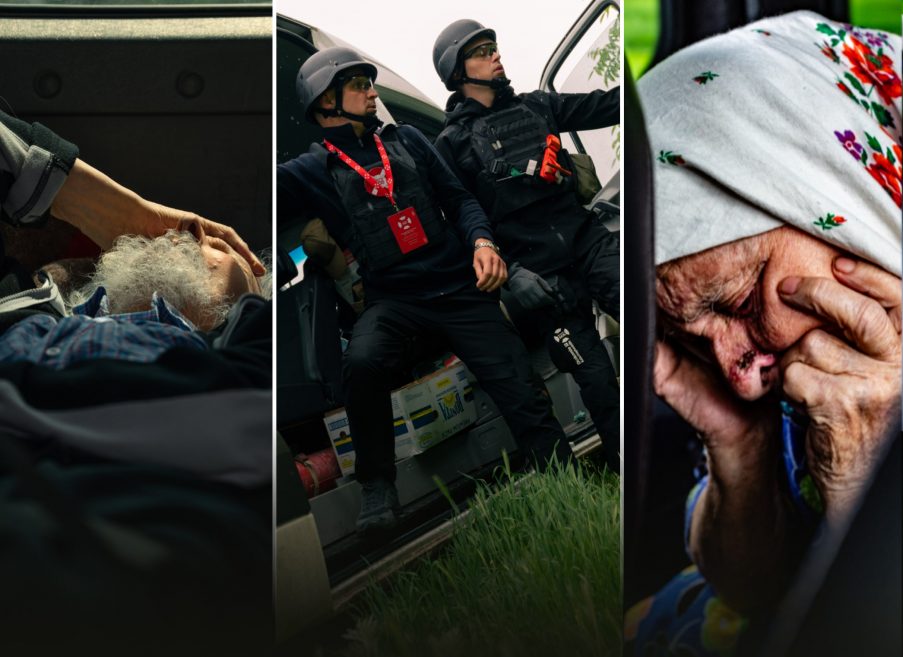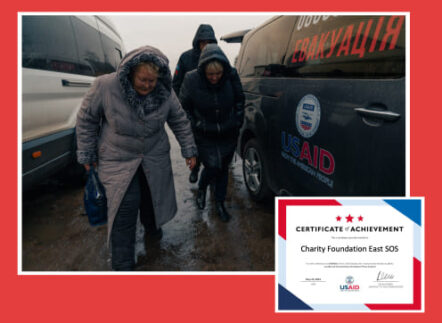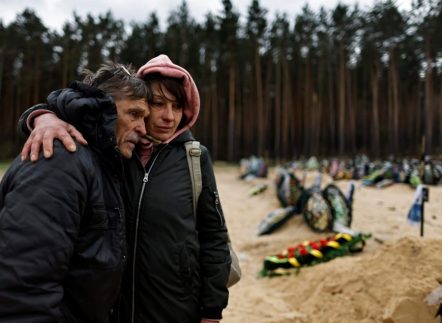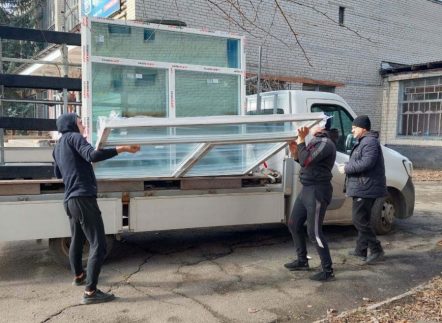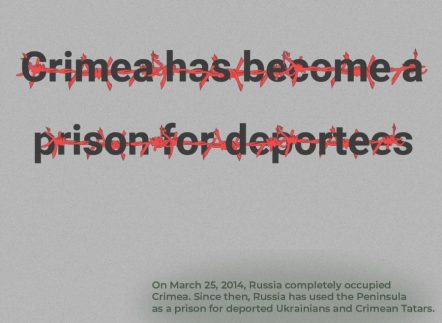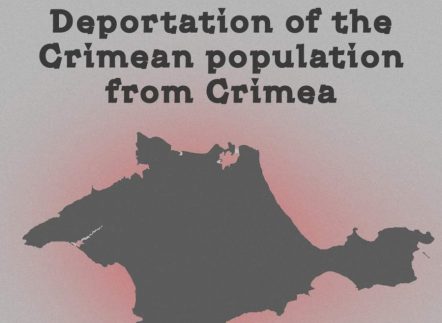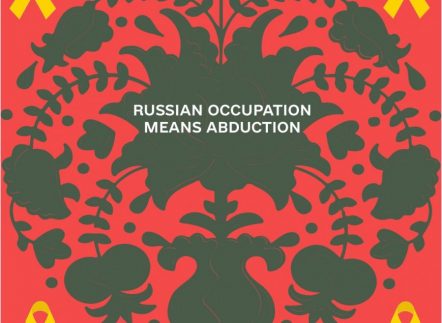We are addressing the United Nations Global Compact to express our endorsement of its mission to advocate for companies to align their practices with universal principles encompassing human rights, labor, anti-corruption, and environmental concerns. Specifically, we intend to illuminate the contraventions of Principles 1, 2, 3, and 4 of the UN Global Compact’s Ten Principles by the State Atomic Energy Corporation “Rosatom,” a participating entity.
A recent report by Truth Hounds, entitled “In A Nuclear Prison: How Rosatom Turned Europe’s Largest Nuclear Power Plant іnto а Torture Chamber аnd How Can The World Stop It,” sheds light on the egregious acts perpetrated by the Russian occupying forces at the Zaporizhzhia Nuclear Power Plant (ZNPP) under the auspices of the “Rosatom” State Nuclear Energy Corporation (“Rosatom”), which has unlawfully assumed control of the ZNPP.
The ZNPP, recognized as Europe’s largest nuclear facility, came under the control of “Rosatom,” the Russian Federation’s atomic energy corporation, as of approximately March 11th, 2022. As delineated in the report above, the actions of Rosatom represent breaches of numerous international nuclear treaty obligations, international humanitarian laws, human rights statutes, criminal statutes, as well as fundamental international frameworks such as the United Nations Guiding Principles on Business and Human Rights (UNGPs), the Organization for Economic Cooperation and Development (OECD) Guidelines for Multinational Enterprises, and the UN Global Compact.
On March 12th, 2022, personnel affiliated with “Rosatom” assumed operational authority over the ZNPP. Eyewitness testimonies and evidentiary documentation provided in the report expose the collaborative efforts of these “Rosatom” personnel with agents from the Federal Security Service of the Russian Federation (FSB). Their joint endeavors encompassed coercive measures, employing intimidation tactics to elicit compliance, compelling employees to report to both the Russian military and “Rosatom” personnel, and coercing existing ZNPP staff to enter into new labor agreements with “Rosatom.” On October 5th, 2022, ZNPP was unlawfully appropriated as Russian state property by presidential decree.
The report highlights Rosatom’s collaboration with the Russian military in conducting a “systematic, widespread campaign of abductions, torture, and murder of ZNPP staff and Enerhodar residents.” It is estimated that one thousand individuals have fallen victim to torture in this campaign, which encompasses a range of atrocities, including but not limited to:
- aggravated assaults and vicious beatings,
- strangulation and suffocation,
- electric torture,
- forcing victims to dig their graves,
- mock executions,
- threats of rape of victims and their relatives,
- and keeping detainees in overcrowded chambers with no food, water, or fresh air.
At least one person has been confirmed to be tortured to death.
Having introduced a systematic practice of torturing disloyal ZNPP workers for their refusal to cooperate with “Rosatom,” the Russian military established a network of torture chambers, some of which are located within the territory of the ZNPP industrial zone managed by “Rosatom.” This assertion is supported by the testimonies collected from witnesses of war crimes committed by Russians at the ZNPP, as documented by the Association of Relatives of Kremlin Political Prisoners.
According to information disclosed by the mayor of Energodar, Dmytro Orlov, at least 1,500 ZNPP workers and citizens have been subjected to torture chambers at the ZNPP and in Energodar, with approximately 100 individuals constantly held captive. The repression, oppression, persecution, and illegal imprisonment carried out by the Russian military, with the support of “Rosatom” leadership, have devastated the city. Out of the 55,000 residents who lived there before the invasion of the Russian occupying forces, up to 10,000 Ukrainian citizens were coerced to remain in the city.
Witnesses affirm that while “Rosatom” employees and agents may not directly participate in acts of torture, they possess full awareness of these practices. Their complicity is underscored by the acknowledgment that without their knowledge or tacit approval, the perpetration of torture would not have been feasible. The report confirms that “[t]here is clear, verifiable evidence that “Rosatom”, as a state-run agency, and as represented by its individual employees, has been and remains fully aware of the scale of this active torture network operating within ZNPP.”
As outlined in the Truth Hounds report, on October 5, 2020, “Rosatom” officially became a member of the UN General Assembly. Simultaneously, it issued the requisite Letter of Commitment affirming Rosatom’s adherence to the Ten Principles of the UN General Assembly concerning respect for human rights, the environment, and the fight against corruption.
General Director of “Rosatom” Oleksiy Likhachev stated: “Through its activities, “Rosatom” seeks to create favorable conditions for human life…”. In particular, “Rosatom” undertook to comply with Principles 1 and 2 of the UN Global Declaration, which provide for “support and respect for the protection of internationally proclaimed human rights” and ensuring that “business circles are not complicit in human rights violations.”
The scope of these obligations is further detailed in the UN Global Compact. First, according to Principle 11 of the UN General Assembly, “Businesses must respect human rights. This means that they must avoid violating the human rights of others and must eliminate the adverse impact on human rights in which they are involved.” Eliminating the adverse impact on human rights requires taking adequate measures to prevent, mitigate and, if necessary, compensate for the damage.
Despite a continuous presence at the ZNPP since the initial weeks of the Russian occupation and official responsibility for its operation since October, the Truth Hounds report alleges that “Rosatom” has failed to establish or enforce any due diligence mechanisms to mitigate the adverse consequences of its involvement in the plant’s operation.
On the contrary, Rosatom’s presence at the ZNPP is described as marked by abuses, kidnappings, and cruel treatment of ZNPP employees and their families. Given the context of the ongoing armed conflict, “Rosatom,” which increasingly assumes responsibility for the ZNPP’s operation despite the illegal occupation, should exercise particular caution.
Eyewitnesses provided Truth Hounds with explicit and unequivocal accounts of torture and other crimes, including but not limited to aggravated assault, severe beatings, strangulation, electric shocks, forcing victims to dig their graves, mock executions, threats against rape victims and their relatives, and detention in overcrowded cells without access to food, water, or fresh air. Employees at the ZNPP are reportedly abducted from their workplaces and subjected to interrogation or torture by FSB officers, often with the participation and knowledge of “Rosatom” employees or agents.
Witnesses interviewed by Truth Hounds have reported that while “Rosatom” employees may not directly participate in acts of torture, they are fully aware of its practice and acknowledge that without their knowledge, such acts would not occur. Despite actively cooperating with the occupation authorities, “Rosatom” has never raised concerns regarding the serious human rights violations against ZNPP workers.
In light of the Truth Hounds investigation, it is evident that “Rosatom” fails to take adequate measures to eliminate gross violations of workers’ rights and mitigate the negative consequences resulting from the ineffective management of the ZNPP. This failure represents a breach of “Rosatom’s” corporate due diligence obligations outlined in Principles 11-13 of the UN Global Compact.
By neglecting to address gross violations of workers’ rights and the negative impacts of its management practices at the ZNPP, “Rosatom” violates its corporate due diligence obligations. This inaction contributes to the most serious violations of international law, including torture and cruel, inhuman, and degrading treatment. “Rosatom” does so without conducting proper human rights due diligence, despite the increased risk of human rights violations and the existence of direct evidence of such violations at its facilities.
Torture and cruel, inhuman or degrading treatment is a violation of the imperative norms of international law, prohibited by Art. 3 of the European Convention on Human Rights, Art. 3 of the Convention on the Protection of Human Rights and Fundamental Freedoms of the European Convention on Human Rights, Art. 7 of the International Covenant on Civil and Political Rights, articles 32 and 147 of the Convention (IV) for the Protection of the Civilian Population in Time of War (Geneva Convention IV), article 75(2) of the Additional Protocol to the Geneva Conventions of August 12, 1949, relating to the protection of victims international armed conflicts.
Given the outlined details, Rosatom’s actions potentially breach numerous international norms and legal frameworks, including but not limited to:
- Principles 11-13 of the UN Guiding Principles on Business and Human Rights,
- Article 3 European Convention of Human Rights,
- Article 7 of the International Covenant on Civil and Political Rights,
- Articles 32 and 147 of Convention (IV) relative to the Protection of Civilian Persons in Time of War (“GC IV”),
- Article 75(2) of Protocol Additional to the Geneva Conventions of 12 August 1949,
- The Convention Against Torture and Other Cruel, Inhuman or Degrading Treatment or Punishment,
- Article 8(2)(a)(ii) of the Rome Statute,
- Article 7(1)(f) of the Rome Statute,
- Article 7(1)(k) of the Rome Statute.
Despite clear evidence indicating that “Rosatom” staff were complicit in a common purpose with the Russian occupying forces, resulting in the torture, intimidation, and mistreatment of Ukrainian personnel and their families, “Rosatom’s” involvement in these actions has failed to yield significant impacts on its operations, contracts, and other agreements.
The continued unchanged business relationships and agreements with “Rosatom” in the face of such serious allegations, which include risking lives, compromising safety, property damage, and environmental hazards such as radiation exposure and the release of nuclear substances, raise profound questions regarding the necessity for accountability of “Rosatom,” the imposition of further sanctions, and the enforcement of corporate due diligence obligations.
In light of the information presented, we firmly believe that Rosatom’s continued participation in the UN Global Compact not only undermines the core mission of the UNGC but also validates and legitimizes Rosatom’s involvement in actions contrary to international human rights and humanitarian law.
Therefore, we are writing to formally request the expulsion of “Rosatom” from the UN Global Compact. Thank you for your attention to this urgent matter. We anticipate your prompt action in addressing this critical issue.
Organizations – signatories who have received this appeal:
- CF “EAST-SOS”,
- B4Ukraine,
- Dixi,
- Center for Global Studies “Strategy XXI”,
- 5am Coalition,
- Association of Relatives of Kremlin Political Prisoners,
- Center for Civil Liberties.
